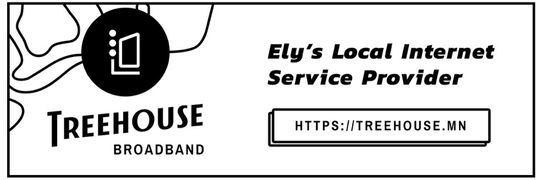by Tom Coombe
After much discussion earlier, Ely council members didn’t have much to say Tuesday, when they finalized ordinances to regulate the sale of cannabis-based products in town.
Ordinances that would severely limit the number of cannabis-based businesses in Ely and where they might be located were approved, on 6-0 votes with member Al Forsman absent.
Only three cannabis-based retail businesses will be allowed in the city, and much of the downtown business district would be off-limits given the establishment of buffer zones.
While current sales of “lower potency” products such as edibles and cannabis-infused drinks would largely continue as is, the ordinance establishes a new category for “cannabis retail businesses,” and establishes buffer zones that prohibit them within 500-to-1,000 feet of various entities including schools, daycares, residential treatment facilities, parks and other cannabis businesses.
A map presented at a public hearing earlier in the month showed that the buffer zones close out much of the business district, but openings exist on Sheridan Street from 10th Avenue East to 13th Avenue East, as well as just west of Central Avenue.
The former Ely Bowling Center, which has new owners and is being eyed for development of a cannabis dispensary, falls outside of the buffer zone and plans continue for a business there that could open in 2025.
Richard Stuart, one of the owners of the new business, addressed council members after they approved the ordinance and thanked those who took part in the debate the last several months.
Stuart also pledged that his business will have an education component to include “materials that will go to every patron who goes through the point of sale” as well as “listening sessions so we can hear from our constituents in our community.”
Sales will also be made with “opaque packaging that’s child resistant.”
Stuart said he had just returned from a field trip to Ironwood, Mich., where cannabis sales are already allowed.
“I went over there and in a one-mile stretch of road they have five dispensaries,” said Stuart. “It was not something to be enjoyed.”
Council discussion centered on the number of cannabis-specific businesses to allow, with talk going from one, up to five, and eventually settling at three.
The buffer zones were also debated, with several council members insisting they were needed in part to keep sales away from areas where children may gather.
At the public hearing, council members heard varying viewpoints, from residents concerned about drug addiction and the proximity of cannabis use to children, to others who cited the potential economic impact of cannabis-based businesses and those who tamped down worries about the use of cannabis-based products.
Council members didn’t have much more to offer Tuesday and city attorney Kelly Klun said “we’re probably discussed out because we discussed it a lot,” and noting that clerk-treasurer Harold Langowski said the council may have “beat it to death.”
Council action is coming in the wake of state legislative action that legalizes recreational marijuana.
In July, the city enacted a temporary moratorium on the establishment of new commercial operations related to the sale, distribution and manufacturing of cannabis and THC products, but the city is required to have its own regulations in place by the end of the year.
The first ordinance approved further defines cannabis-related products and defines low potency products including those intended to be eaten or consumed, is not a drug, do not contain cannabinoids derived from plants or flowers, and is the type of product approved for sale by the Minnesota Office of Cannabis Management.
These products are those typically found at convenience stores or bars.
The ordinance sets up licensing provisions for these businesses and allows for a maximum of 10 of these businesses in the city limits.
It includes prohibitions typical to the sale of other products such as cigarettes or alcohol including a ban on self-service machines and a minimum age (21) requirement for purchase.
The sale of those products and operation of those businesses would not be subject to the proposed buffer zones.
The buffer zones apply to retail cannabis businesses, as well as any business that proposes to manufacture, test or cultivate cannabis.










